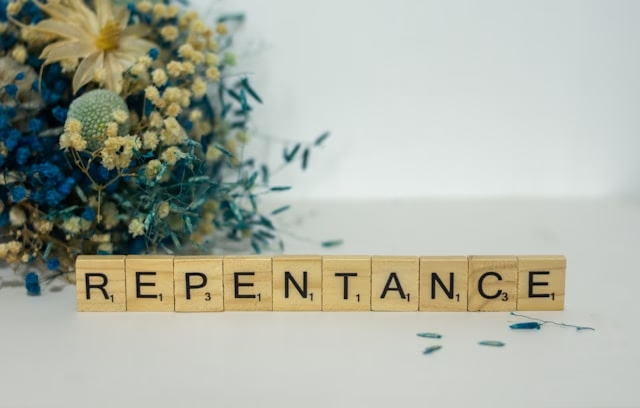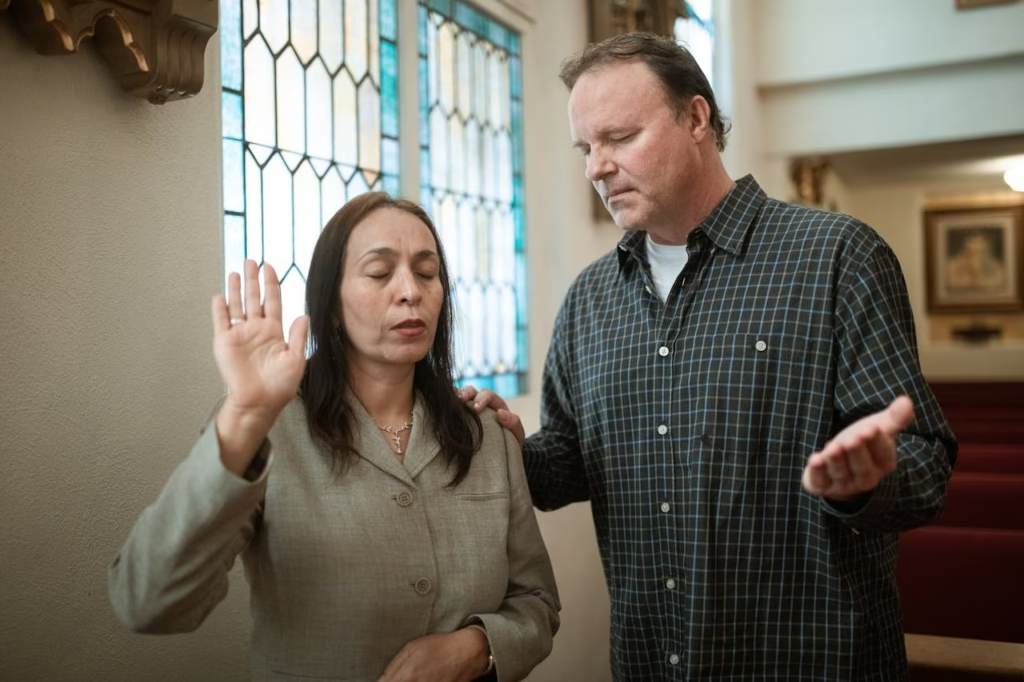You may wonder whether Jesus’ sacrifice on the cross truly covers not only your past sins but also those you have yet to commit. Understanding how forgiveness works in your faith journey is crucial to finding peace and assurance in God’s grace. This article explores what the Bible says about Jesus’ ability to forgive future sins, clarifying common questions and helping you grasp the relationship between repentance, forgiveness, and living a life aligned with God’s will.
Key Takeaways:
- Jesus’ sacrifice on the cross was once and for all, providing forgiveness not only for past sins but also for future sins.
- Sin is defined biblically as any action, deliberate or accidental, against God’s nature or commands, creating separation from Him.
- Though Jesus can forgive future sins, believers are called to confess their sins and maintain a repentant heart to receive ongoing forgiveness (1 John 1:9).
- Forgiveness is not a license to continue sinning; Christians are urged to live transformed lives, resisting the temptation to misuse grace (Romans 6:1-2).
- Deliberate, continuous sin after coming to the knowledge of the truth threatens the loss of forgiveness and invokes serious biblical warnings (Hebrews 10:26-29).
- Spiritual disciplines such as prayer, Bible study, worship, and communion help believers stay close to God and grow in faithfulness.
- Walking in forgiveness involves a balance of God’s grace and personal responsibility to live in a way that honors God and reflects His love.

Understanding Sin and Forgiveness
A fundamental part of your faith journey involves grasping the nature of sin and how forgiveness operates through Jesus’ sacrifice. If you have ever asked yourself questions like Does God forgive the sins we will commit in the future, or just those from our past?, you are not alone. Diving into this topic is crucial for aligning your theology with the biblical truth that Jesus’ death on the cross was a once-and-for-all event—a complete atonement for your sins, past, present, and future. Understanding what sin really means will help you recognize why forgiveness is offered to you and how you can maintain a relationship with God that is free from the burden of guilt but full of ongoing responsibility.
At its core, forgiveness is the divine response to a broken relationship caused by sin. The Bible describes sin as any action, thought, or attitude that separates you from God’s holy nature and His commands. You don’t have to perfectly obey every rule to feel this separation because even unintentional disobedience creates a rift. However, the promise that Jesus’ sacrifice covers all your sins—whether you’ve already committed them or will commit them in the future—offers profound peace and hope. This is why your faith in Jesus is not just about your past mistakes but about your ongoing life and your future choices.
Ultimately, embracing Jesus’ forgiveness invites you into a restored relationship with God. This relationship acknowledges the reality of your sin but also celebrates God’s grace and mercy that bridge the gap sin has created. As you learn more about sin and forgiveness, you will be empowered to live in freedom while respecting the transformative power of Jesus’ sacrifice, which covers all sins once and for all.
Definition of Sin
To understand forgiveness, you first need clarity on what sin actually is. Sin, according to Scripture, is anything you do that goes against God’s nature or violates His commandments. It includes both deliberate choices and accidental mistakes that run counter to God’s perfect will. When you engage in sin, you are crucially resisting the relationship God desires to have with you, which separates you from His presence and His blessings.
Sin is not limited to outward actions but also includes your inner attitudes and thoughts. You might struggle with anger, pride, or selfishness—each of these is considered sin because it reflects a heart condition that does not align with God’s character. In the story of Cain and Abel in Genesis 4:7, God warns Cain that sin is “crouching at your door” and that he must master it. This vivid imagery reminds you that sin is an ever-present temptation seeking control over your life, but it is something you are called to resist.
When you fully grasp the nature of sin, it becomes clear why forgiveness is so necessary. Sin disrupts the harmony between you and God, and no matter how hard you try on your own, you cannot erase it by effort or good deeds. That is why the Bible points to the need for a sacrifice to atone for sin, ultimately fulfilled in Jesus. Your awareness of sin as rebellion against God prepares you to receive forgiveness with humility and gratitude, recognizing it as a gift rather than an entitlement.
Consequences of Sin
To realize the importance of forgiveness, you must understand the consequences that sin brings into your life. Sin creates separation between you and God—a spiritual death that breaks the perfect relationship He intended for you. From the time of Adam and Eve’s transgression, the effects of sin have impacted humanity physically, emotionally, and spiritually. This separation affects not only your standing with God but can also influence your sense of peace, purpose, and well-being here on earth.
You also face the weight of guilt and shame because sin goes against your conscience and God’s law. These feelings let you know that something is wrong and nudge you to seek reconciliation. Without forgiveness, the burden of sin can become overwhelming, leading to feelings of despair and hopelessness. But unlike temporary solutions offered through the Old Testament sacrifices, Jesus’ sacrifice provides a permanent atonement that frees you from ongoing condemnation when you come to Him in faith.
Understanding these consequences reshapes how you view your life and decisions. It helps you realize why forgiveness is more than a one-time event; it is an ongoing necessity as you face trials and temptations daily. Being forgiven by Jesus means not only being rescued from eternal separation but also being empowered to live a renewed life in right relationship with God.
This spiritual death and separation brought about by sin highlight why God instituted sacrifices in the Old Testament, such as those described in Leviticus, to cover sin temporarily. But these were only precursors to the ultimate sacrifice of Jesus. His death was once and for all, a perfect and final payment that no longer requires repeated offerings. Because of this, you can approach God confidently, knowing that your sins—past, present, and future—are fully covered if you come in faith and repentance. This truth assures you of forgiveness, but it also invites you to live responsibly, never taking the gift of grace for granted or using it as a license to continue in sin.
Jesus’ Sacrifice: The Once and For All Offering
One of the most profound truths you encounter as a believer is the understanding that Jesus’ death on the cross was a definitive, once and for all atonement for sin. Unlike ongoing sacrifices that were required continuously in the past, Jesus’ sacrifice transcends time, covering not only your past sins but also your present and future transgressions. This means you do not need to worry about earning forgiveness repeatedly through works or rituals. The sufficiency of Jesus’ offering is grounded in the perfect and complete nature of His obedience and sacrifice, which opened the door for a restored relationship with God. By embracing this reality, you can approach God with confidence, knowing your forgiveness is secure because of what Christ accomplished.
Because Jesus died long before you were born, every sin you commit—whether before or after coming to faith—is encompassed in His sacrifice. His atoning work is not limited by time or circumstance; it is eternal and all-encompassing. Therefore, when you come to Jesus in faith, you access the power of His blood to cleanse and cover your sins, not just from the past, but those yet to occur in your life. This means your spiritual peace rests not in your ability to be sinless, which no one can achieve, but in the promise that Jesus continually offers forgiveness when you come to Him with repentant hearts. You are invited into a covenant of grace that sustains you daily.
However, understanding this gift also places a responsibility on your shoulders. The forgiveness extended through Jesus is not a license to sin freely or complacently. While His death offers full and free atonement, your response to God’s grace should lead you into deeper repentance and transformation. Your relationship with God is dynamic and calls you to live in a way that honors His sacrifice—turning away from sin and walking in obedience. The assurance you have through Jesus’ once-for-all sacrifice should inspire you toward a life marked by gratitude and faithfulness, not just dependence on forgiveness alone.
Old Testament Atonement
Against the backdrop of the Old Testament, the system of atonement centered on the shedding of animal blood to cover sin, which pointed toward the ultimate sacrifice that was to come. You see, after Adam and Eve sinned, God provided a covering for their nakedness by sacrificing an animal, illustrating from the very beginning that sin required payment through the death of a substitute. Throughout the Mosaic Law, sacrifices were prescribed to atone for the deliberate and inadvertent sins of the people of Israel, but these offerings were temporary and repetitive. Every year, priests offered sacrifices in the temple, symbolizing that full forgiveness had not yet been secured for the people.
The law revealed to you the seriousness of sin and the necessity of a means to address it, but it could not remove sin permanently from your life or restore your relationship with God fully. The repeated sacrifices were a constant reminder that the barrier between humanity and God remained due to sin’s stain. These offerings highlighted the holiness of God and the cost required to approach Him, but they also pointed to the need for a perfect, final sacrifice that would address sin once and for all, rather than continually.
In this way, you can appreciate that the Old Testament atonement was preparatory and symbolic. It set the spiritual context within which Jesus’ sacrifice would one day fulfill God’s plan for reconciliation. Understanding this background equips you with greater insight into why Jesus’ death represents such a transformative event—you no longer rely on continual sacrifices but instead stand on the promise of a single, comprehensive atonement that covers every sin, past, present, and future.
New Covenant through Christ
With the coming of Jesus, the Old Testament system of sacrifices found its fulfillment in a new covenant that secures your forgiveness permanently. Jesus voluntarily took upon Himself the penalty for all sin by offering His body once on the cross as the perfect sacrifice. Unlike the animal offerings that could not permanently remove sin, Christ’s blood was shed to provide a definitive cleansing for your sins, establishing a new way for you to be reconciled with God. This covenant guarantees eternal life to everyone who believes, bridging the separation caused by sin and restoring your relationship with the Father.
By embracing this new covenant, you receive more than forgiveness—you gain access to a transformative relationship that empowers you to live free from the dominion of sin. The apostle Paul emphasized this in Romans 6, reminding you that grace is not a permission slip to continue in sin, but the power to live a changed life. Your acceptance of Jesus’ sacrifice is the beginning of a lifelong journey of repentance, sanctification, and renewal, all made possible through this once-for-all atoning work.
This new covenant underscores God’s loving initiative and ongoing faithfulness to you. It invites you to confess your sins and receive forgiveness continually, as the apostle John teaches in 1 John 1:9, fostering a relationship that grows deeper with each act of repentance and grace received. Jesus’ once-for-all sacrifice assures you that forgiveness is never out of reach, as long as you walk with a repentant heart and a desire to honor Him.
Through this covenant, you are invited into a new life that transcends the limitations of the Old Testament sacrificial system. Rather than repeatedly offering sacrifices, you now experience a direct and continuous connection with God through Jesus. The sacrifice of Christ is not only sufficient but also timely and relational, empowering you to live in the freedom of forgiveness every single day. This means your spiritual walk is marked by both assurance in God’s mercy and an active pursuit of holiness empowered by the Holy Spirit, reflecting the fullness of the new covenant found in Christ.
The Scope of Forgiveness
Keep in mind that Jesus’ sacrifice on the cross was a defining moment that reshaped your relationship with God forever. The scope of forgiveness offered through Christ is both expansive and transformative—it covers every sin you have committed, are committing, and will commit in the future. This is not just theoretical or abstract; it is a profound reality rooted in the biblical teaching that Jesus died “once, and for all” to atone for the sins of humanity (Hebrews 10:10). Forgiveness is available to you not only for your past failures but also as an assurance that your future falls will not separate you from the love and grace of God, as long as you remain open to His conviction and ready to confess. Engaging with this truth means understanding the balance between grace and responsibility, between receiving forgiveness and living a life aligned with God’s will.
In embracing the scope of Jesus’ forgiveness, you are invited into a continuous relationship that is defined by repentance and renewal. Forgiveness is not a one-time transaction in isolation from your ongoing life; rather, it is an active process that carries you through your spiritual journey. This divine forgiveness liberates you from the weight of guilt and shame that past sins bring, allowing you to move forward without being trapped by previous mistakes. The Bible calls sin anything that violates God’s nature or commands, whether intentional or accidental, and this universal standard sets the stage for why forgiveness is necessary and how infinitely needed it is in your life (Genesis 4:7; 1 John 1:9). You are able to embrace the freedom that comes from knowing your past does not define you.
At the same time, the scope of forgiveness challenges you to live with integrity and faithfulness. Even as Jesus offers complete and lasting atonement, He calls you to resist complacency, which might arise from assuming all future sins are automatically “covered” without repentance. You are called to respond to the Holy Spirit’s prompting and to confess your sins honestly, embracing the grace that purifies and transforms you (Romans 6:1-2). As you grow in your faith through prayer, Bible study, and fellowship, you build spiritual strength that helps you honor this gift of forgiveness daily. By understanding the full scope of forgiveness, you gain not only peace but also motivation to live in a way that honors the sacrifice Jesus made for you.
Past Sins
Along your spiritual journey, the burden of past sins can often feel overwhelming. These are the actions and choices you’ve made before coming to faith or before fully understanding God’s expectations. Your conscience might replay those mistakes, making you question whether forgiveness can truly cover everything you have done. The reassurance found in Scripture is clear: Jesus’ death pays the penalty for all your past sins, fully and completely. This becomes the foundation of your faith, offering you rest and freedom from guilt that once held you captive. You don’t need to carry the weight of regret or be stuck in shame because Christ’s sacrifice has dealt with every offense from your past.
It’s important for you to grasp that this forgiveness is not limited or conditional on your past performance but is an outpouring of God’s grace extended through faith. By coming to Jesus in faith, you are welcomed into a restored relationship with God, forgiven for those sins that separated you from Him. This restoration is not something to be taken lightly—it is the core of the gospel message that alters your identity from sinner to beloved child of God. Understanding this truth empowers you to let go of old guilt and begin anew, walking in the freedom that only Christ can provide.
Moreover, this forgiveness for past sins has a sanctifying effect on your life. It changes your perspective and calls you into a new way of living where you are no longer enslaved by former habits or failures. The promise of forgiveness enables you to extend grace to yourself as well, acknowledging that your value is not defined by your past but by God’s unchanging love. You are invited to live forward, confident that your past has been covered once and for all, allowing you to focus on growing in holiness and obedience as you walk with the Lord every day.
Future Sins
Below the surface of your daily life, the reality of future sins may feel unsettling, especially when you consider that temptation and weakness remain present. You might wonder if the forgiveness Jesus offers can truly cover the mistakes you have yet to make. The good news is profound: because Jesus’ sacrifice is “once and for all,” it extends to every sin you have not yet committed as well as those you already have (Hebrews 10:10). His forgiveness is not limited by time or circumstance—it reaches forward into your future, offering a continual chance to experience mercy whenever you turn to Him in faith and repentance.
This ongoing offer of forgiveness means you are not condemned by the sins you will face, provided you do not reject God’s grace or harden your heart against His prompting. You must remain attentive to your spiritual condition and willing to confess honestly when you stumble. The Apostle John assures you that if you confess your sins, God is faithful to forgive and cleanse you from all unrighteousness (1 John 1:9). This means your walk with God involves a daily commitment to humility and openness, recognizing that future sins do not have the power to separate you from His love unless you refuse to seek His forgiveness.
However, you also need to be aware of the tension that exists within this forgiveness. Knowing that future sins can be forgiven carries the risk of complacency or taking grace for granted. The Apostle Paul warns explicitly against continuing in sin under the assumption that grace will simply increase (Romans 6:1-2). It is your responsibility to engage actively with God’s will, ensuring that you do not use forgiveness as a license to sin but as a motivation to live in obedience and holiness. Embracing this balance allows you to fully appreciate the scope of forgiveness as both a gift and a call to transformation.
This understanding of future sins further deepens your spiritual journey, reminding you that while Jesus covers all sin, your cooperation through repentance and faith is vital. It highlights that forgiveness is not a one-time box to check but a continual process where you meet God daily, confess your shortcomings, and receive His cleansing power. This ongoing relationship helps you avoid falling into despair or moral laxity, empowering you instead to grow in grace and truth throughout your life.

The Role of Repentance
Not all sins are alike in how they affect your relationship with God, and repentance plays an important role in maintaining that relationship after you come to faith. While Jesus’ death covers your past, present, and future sins, forgiveness is not a license to ignore your need to confess and turn away from sin continually. True repentance requires a heartfelt recognition of your wrongdoing and a willingness to change your behavior, demonstrating your desire to live according to God’s will. Without repentance, you risk distancing yourself from the grace freely offered through Jesus’ sacrifice.
Not only does repentance restore your fellowship with God, but it also transforms your life by helping you align your actions with His purpose for you. The Bible highlights this in Hebrews 10:26-29, stressing that deliberately continuing in sin after knowing the truth leaves no sacrifice for sins and leads to judgment. This warns you that persistent rebellion against God’s commands, without repentance, can place you outside forgiveness. Therefore, repentance isn’t a one-time event but an ongoing attitude that keeps your heart tuned to God’s leading and draws you closer to Him daily.
Not engaging in repentance undermines the joy and peace that come from walking in God’s forgiveness. By choosing to repent whenever you falter, you respond to the Holy Spirit’s promptings and sustain a vibrant relationship with the Lord. In doing so, you experience the purification and renewal mentioned in 1 John 1:9–10, where God is faithful to forgive and cleanse you from all unrighteousness when you confess your sins. Your willingness to repent actively participates in the grace that Jesus has made available to you and strengthens your spiritual journey.
Importance of Confession
Among the ways you maintain your connection with God, confession of sin stands as a vital practice. Confession is not merely admitting wrong; it is an act of humility that acknowledges your need for God’s forgiveness and your desire to be restored. When you confess, you allow God to work in your life, purifying you from the sin that separates you from His presence. This aligns with the Apostle John’s promise that God is faithful and just to forgive your sins when you confess them.
Among believers, confession fosters transparency and accountability, helping you avoid the trap of denial that can lead to spiritual stagnation. Claiming you have not sinned, as John warns, makes God out to be a liar and pushes you away from the truth that should dwell within you. By regularly confessing your sins, you open your heart to God’s transformative power and receive His cleansing grace, which helps you grow in holiness and spiritual maturity.
Among the many blessings of confession is the restoration of peace in your soul. Sin causes separation and unrest, but when you bring your shortcomings before God, you experience relief from guilt and shame. This act of confession also restores your fellowship with God, enabling you to walk in the freedom that Christ’s sacrifice has won. It is through this practice that you continue to live in the light of God’s forgiveness rather than in the darkness of hidden sin.
The Danger of Complacency
One of the greatest risks you face after embracing the forgiveness offered by Jesus is falling into complacency regarding sin. Knowing that your sins—past, present, and future—are forgiven can sometimes lead to a false sense of security, tempting you to live without genuine concern for holiness. This attitude can diminish your sensitivity to sin and dull your responsiveness to the Holy Spirit’s convictions, setting a dangerous precedent for ongoing disobedience.
One way complacency manifests is through the misconception that grace provides a permanent cover for careless living. However, the Apostle Paul strongly opposes this notion in Romans 6:1-2, challenging you to reject the idea that grace encourages continual sinning. You are called to recognize that having died to sin through Christ, your life should reflect a departure from it, not a continuation. Living with this awareness helps you avoid habits that can erode your spiritual integrity over time.
One more subtle danger is the potential desensitization to sin’s consequences, both personally and in your witness to the world. When sin is treated lightly, it damages your relationship with God and confuses others about the seriousness of holiness. Staying vigilant and responsive to the Holy Spirit’s leading guards against this complacency, encouraging you to live in a way that honors God and reflects the transformative power of forgiveness.
Further, complacency can stunt your spiritual growth by making you passive rather than proactive in your faith journey. If you neglect the disciplines of prayer, Bible study, and regular fellowship, you may find yourself drifting away from the vibrant relationship God desires with you. The article reminds you that these practices cultivate your love for God and maintain your awareness of His will, which serves as a protective barrier against the temptation to sin without remorse. Remaining engaged and diligent helps you respond to forgiveness not as a license to sin but as a call to live responsibly in God’s grace.

Living in Light of Forgiveness
Unlike the idea that forgiveness frees you to act without regard for God’s will, living in light of Jesus’ forgiveness calls you into a deeper awareness of the grace you have received. The forgiveness offered through Jesus’ sacrifice is not a license to continue in sin, but rather an invitation to a transformed life that reflects God’s holiness. You are invited to approach each day with a posture of humility and gratitude, understanding that God provides new grace daily to empower you to walk faithfully. This ongoing relationship with God means that forgiveness is a dynamic experience—it involves continuously coming before Him, laying your burdens and shortcomings at the foot of the cross, and seeking mercy for those moments when you fall short.
When you embrace forgiveness as a living reality, it shapes every aspect of how you interact with the world and with God. Forgiveness brings freedom, but it also brings responsibility and opportunity. It releases you from the weight of guilt and shame, but encourages you to grow into a life that honors God’s will. As you nurture your faith through practices such as prayer, Bible study, worship, and participation in communion, you are reminded not only of what Jesus has done for you but also of how you are called to reflect His love and holiness in your daily decisions. Living in light of forgiveness is a journey that invites continual renewal and commitment.
Ultimately, understanding the breadth of Jesus’ forgiveness reshapes your identity. You are a beloved child of God, forgiven once and for all, yet called to live responsibly within that grace. This means that while your sins—past, present, and future—have been covered by His sacrifice, your life is meant to be an active response to that grace. You are empowered to pursue righteousness, extend grace to others, and remain vigilant against the temptation to misuse the freedom that forgiveness brings. In this way, the reality of forgiveness deeply influences your walk with God and the impact you have in the world.
Responsibility of Believers
Along with the gift of forgiveness comes a responsibility that you are expected to uphold as a believer. This responsibility begins with the acknowledgement that even though Jesus’ death covers all sins, including those you have yet to commit, you must still take sin seriously. As the Apostle John explained, confessing your sins is crucial because it affirms your awareness of sin’s reality and your dependence on God’s mercy (1 John 1:9-10). You are not to treat sin lightly or pretend it does not exist; rather, you recognize it as a real offense against God that requires ongoing repentance and confession.
Carrying this responsibility means living as someone who has died to sin, as Paul instructs in Romans 6:1-2. You cannot continue in sin, expecting grace to cover it without consequence. Instead, you are called to reject sinful patterns and pursue a transformed life that aligns with God’s will. Doing so requires vigilance and a heart committed to obedience, because the freedom you have in Christ is not freedom to indulge the flesh but freedom to serve God with sincerity and faithfulness. This responsibility is not burdensome because it is supported by the grace and strength God provides daily.
Moreover, your responsibility as a believer extends beyond your own life to include your witness to others. Embracing forgiveness means demonstrating the power of God’s grace in your actions, words, and attitudes. You are called to love God fully and love your neighbor as yourself, reflecting the heart of the gospel through your relationships and conduct. By accepting this responsibility, you ensure that forgiveness remains a life-changing force that motivates holy living, not a justification for complacency or sinfulness.
Spiritual Growth and Accountability
Beside acknowledging your responsibility, spiritual growth and accountability play vital roles in how you live out forgiveness. You are invited to deepen your relationship with God through spiritual disciplines like prayer, Bible study, and worship, which help you stay connected to His guidance and truth. Surrounding yourself with a community of believers provides the encouragement and correction needed to grow in faith and avoid falling into patterns of sin. In this way, accountability acts as a safeguard, reminding you that forgiveness is not a one-time event, but an ongoing process of sanctification.
Developing your spiritual maturity requires intentionality. When you make time for worship and fellowship, you create space to hear the Holy Spirit’s prompting to confess and repent when necessary. These practices help keep your conscience sensitive to sin and enable you to respond appropriately. Accountability relationships provide honest feedback and prayer support, strengthening your resolve to live a life that honors the sacrifice Jesus made and embraces the forgiveness He continually offers.
Trusting in forgiveness encourages you to pursue growth actively rather than passively assuming your sins are covered regardless of your lifestyle. The writer to the Hebrews warned against deliberately continuing in sin after knowing the truth, highlighting the weight of such a choice (Hebrews 10:26-29). Your commitment to spiritual growth and accountability is a vital part of demonstrating that you take forgiveness seriously and desire to walk in obedience and grace every day.
Further, engaging consistently in spiritual growth and accountability not only protects you from falling into complacency but also fosters resilience in your faith journey. By regularly reflecting on God’s word and inviting others to speak into your life, you develop a posture of openness and dependence on God. This openness equips you to identify areas where sin may be creeping in and encourages timely repentance. Beyond personal benefits, your growth and accountability contribute to the strength of the broader community of believers, creating a culture where forgiveness leads to transformation, not just absolution.
Conclusion
Upon reflecting on the question of whether Jesus’ death covers your future sins, you can find assurance in the profound truth that His sacrifice was indeed made “once and for all.” This means that when you come to faith in Him, you are not only forgiven for your past transgressions but also receive grace that extends into the future. The biblical teachings make it clear that the forgiveness granted through Jesus’ sacrifice is unlimited in scope—covering every sin you have yet to commit, as well as those already behind you. This divine provision offers you the peace of mind that your relationship with God is restored and sustained through His mercy and love.
However, this understanding doesn’t give you a license to live irresponsibly or apart from God’s will. You are called to a life of sincere repentance and continual growth in your faith. While Jesus’ death provides the foundation for forgiveness, it is your response through confession, repentance, and a commitment to follow His teachings that keeps you aligned with God’s purpose. The biblical exhortations against willfully persisting in sin remind you that your faith journey involves actively turning away from wrongdoing and embracing the transformative power of the Holy Spirit. This ongoing relationship with God honors the sacrifice He made on your behalf.
Ultimately, knowing that your future sins are covered invites you into a deeper freedom and responsibility. You are empowered every day to live in the light of God’s grace—engaging in prayer, study, worship, and fellowship to sustain your walk with Him. The forgiveness offered through Jesus’ death is not merely a one-time event; it is an ongoing invitation to experience renewal, mercy, and restoration as you navigate life’s challenges. Through this understanding, you can confidently step forward, trusting that your faith anchors you in a secure, loving relationship with God that transcends time and circumstance.
FAQ
Q: Does Jesus’ sacrifice cover only the sins committed before becoming a believer?
A: No, Jesus’ sacrifice covers all sins—past, present, and future. His death on the cross was a once-for-all atonement, which means anyone who places their faith in Him receives forgiveness for all their sins, including those they have not yet committed.
Q: How can God forgive sins that have not yet been committed?
A: Since Jesus’ sacrifice happened outside of time from our perspective, it is sufficient to cover all sins throughout a believer’s life. Because He died once for all people, His forgiveness applies to future sins when we come to Him in faith and repent.
Q: Does knowing that Jesus forgives future sins mean we can continue sinning without consequence?
A: No, while God’s forgiveness is available, believers are called to live a transformed life. Scripture warns against using grace as an excuse to keep sinning. True faith involves repentance and turning away from sin, not continuing in it intentionally.
Q: What role does repentance play if future sins are forgiven?
A: Repentance is vital. Confessing sins and seeking God’s forgiveness keeps the believer’s heart aligned with God’s will. Without repentance, persistent deliberate sin can lead to spiritual danger, as noted in Hebrews 10, where deliberate rejection of Christ’s sacrifice has serious consequences.
Q: Can someone lose their forgiveness if they sin after becoming a believer?
A: Forgiveness is available as long as the believer confesses their sins and repents. However, a total and final rejection of Christ—turning away completely and refusing repentance—leads to a separation where forgiveness no longer applies.
Q: How can believers avoid falling into complacency knowing their future sins are forgiven?
A: Believers can stay close to God through regular prayer, Bible study, worship, fellowship, and listening to the Holy Spirit’s guidance. These practices help maintain awareness of sin and encourage sincere repentance rather than complacency.
Q: Why is participating in communion or the Eucharist important in the context of forgiveness?
A: Communion serves as a continual reminder of the cost of forgiveness—Jesus’ sacrifice. It helps believers reflect on the meaning of grace, renew their faith, and recommit to living in a way that honors the gift of salvation provided through Christ’s death and resurrection.








